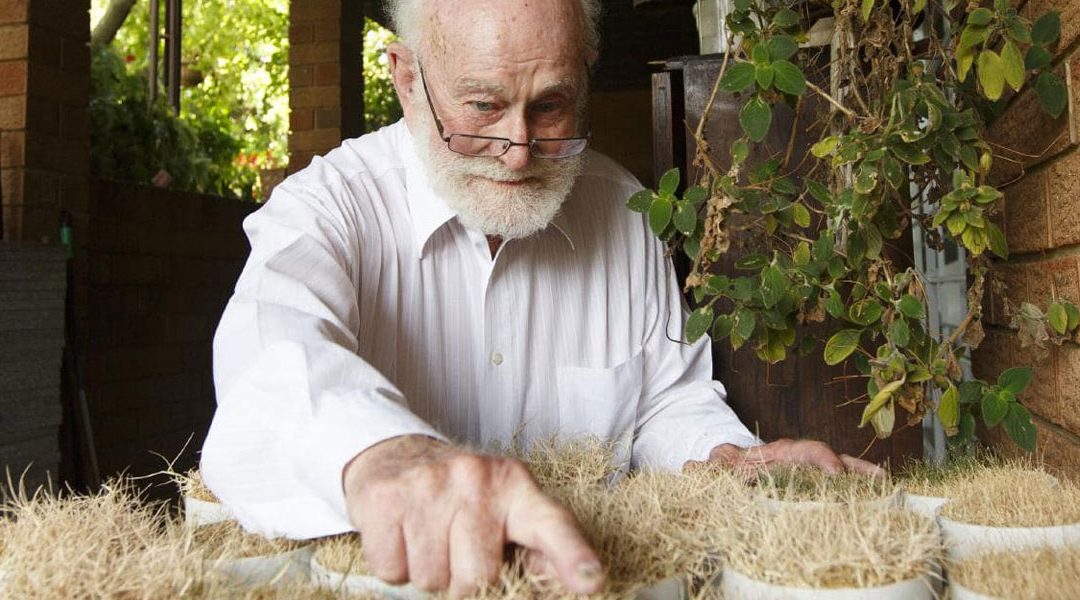Australia’s first scientist to specialise in turf research, Peter McMaugh has been made a Member of the Order of Australia (AM) in this year’s Australia Day Honours. The industry stalwart is the first member of the turf sector to receive the honour, following on from him receiving horticulture’s top award in 2009 – the Graham Gregory Award for excellence in horticulture.
Among Peter’s many accomplishments are creating the name for Sir Walter Buffalo grass, developing the drop-in wicket in the early days of one-day cricket and establishing Australia’s first turf research organisation.
The humble recipient told GROWTH that it “was very nice to have your life’s work acknowledged”.
Peter added that it also meant nationally turf was recognised as an industry that has significant input.
“Thanks, must also go to all the people that have helped me get to where I am today,” he said.
Of his 45-year career Peter said “…the one thing I’m most proud of is still working in an industry in which I was the first scientist to work full-time in Australia”.
He noted that one of his greatest achievements had been “… the major improvement in herbicide work that I did very early in my career for the Golf Industry – the work then became an industry standard”.
Peter also said his most recent achievement was the turf reconstruction of the Royal Randwick Racecourse in Sydney.
Other accomplishments include Peter overseeing the discovery of a new species of nematode that was devastating turf in New South Wales’ Hunter Region, which eventually led to its control. He co-developed innovative machinery to improve turf maintenance and developed controls to eradicate invasive species in Bent grass putting greens and Couch grass fairways, thus helping to improve the quality of Australian golf courses.
In 1974, Peter established a turf production farm, Qualturf, and from 1979 also ran a full-time consultancy, Turfgrass Scientific Services. Through this company he has assisted 100s of growers in increasing their productivity and profitability.
“…the one thing I’m most proud of is still working in an industry in which I was the first scientist to work full-time in Australia.”
Peter’s other work and service to the industry include; Turfgrass Scientific Services (Director – current), Turfgrass Scientist (current), Turfgrowers Association of NSW (Life Member), International Turfgrass Society (Director 1985-2000).
When asked what he felt the industry’s greatest challenge was he clearly said: “Going face-to-face, over any period of time, with the production of quality verses quantity.”
“Until the industry accepts that the grower has to be protected as much as the customer, re quality, it will be hard to move forward,” he stressed.
“If our industry wants to advance its grower’s income it has to accept certification and quality assurance of turf varieties.
“The consumer needs to be guaranteed they are getting pure genetic material, this will also protect the growers – which is just as important.”
Peter said once growers realised the financial benefits in certification, he believed they would embrace the concept and make it happen.
When asked if the 83-year-old was considering slowing down at any stage, he paused and explained how he was still working fulltime breeding grass, completing a research project on highly oxygenated water in turf and writing for various publications. TB

